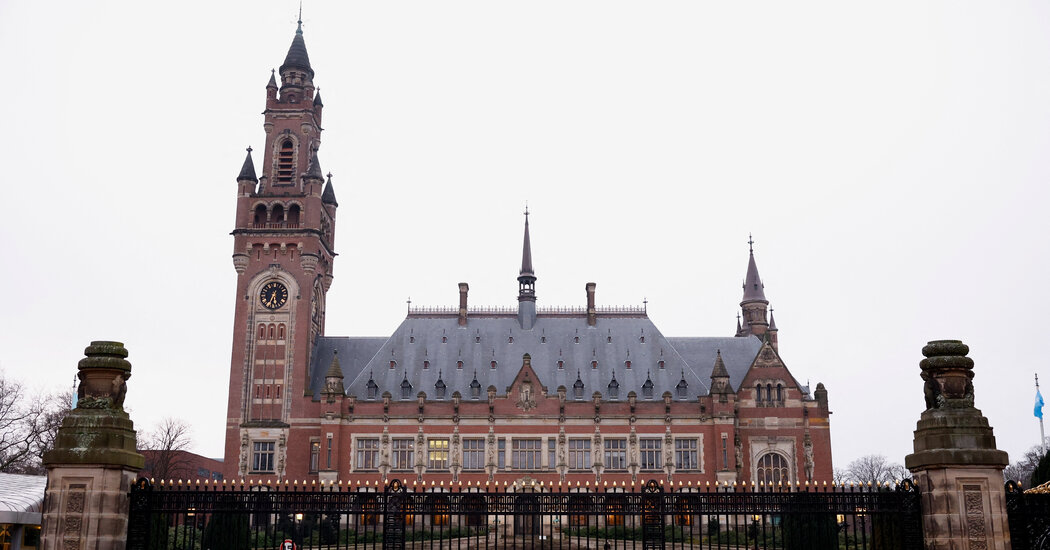Nicaragua, a longtime supporter of the Palestinian cause, is expanding its legal battle over the Gaza conflict at the International Court of Justice by bringing a case against Germany, a major arms supplier to Israel.
Nicaragua claims in its statement that “Germany is facilitating the commission of genocide” in Gaza and is violating the Genocide Convention by providing Israel with military and financial aid. He calls for emergency measures ordering Berlin to suspend its wartime support for Israel.
In hearings opening on Monday at the Hague court, Nicaragua is also expected to argue that Germany allows serious violations of the Geneva Conventions by Israel, in particular the obligation to protect civilians during armed conflicts.
The case brought by Nicaragua raises new questions about the responsibility of the countries that supplied weapons to Israel for the war on Gaza.
Lawyers argue that Germany – Israel's second-largest arms supplier, after the United States – is an easier target for a lawsuit than the United States. Germany has granted full jurisdiction to the International Court of Justice, the highest court of the United Nations. But the United States denies its jurisdiction except in cases where Washington explicitly consents.
The Nicaraguan case is the third this year before the court dealing with the Israeli-Palestinian conflict.
South Africa initially asked the court for emergency measures, arguing that Israel was at risk of committing genocide, a claim the court found plausible but Israel firmly denied. The court ordered Israel to ensure that its citizens and soldiers do not violate the Genocide Convention, which Israel has signed. The convention prohibits actions aimed at destroying, in whole or in part, a national, ethnic, racial or religious group.
South Africa also petitioned the International Court of Justice over hunger in Gaza and won a new ruling ordering Israel to allow the delivery of food, water and other vital supplies “without delay.” Despite its authority, the Court has no means to force Israel to comply with its orders. Israel has strongly denied allegations of deliberate starvation in Gaza.
In February, the court also heard a case requested by the United Nations General Assembly on the legality of Israel's occupation of the Palestinian territories. Those hearings, planned long before the war, were attended by more than 50 countries, most of which gave vent to anger and frustration over Israeli attacks on Gaza and the worsening death toll among civilians, many of which children.
Nicaragua's case is much broader in scope than South Africa's, invoking both violations of the Geneva Conventions and the Genocide Convention and requiring the protection of civilians. It also accuses Israel of other “illegal” behavior in the occupied territories.
The court has not yet accepted the case, but is obliged to react quickly to requests for emergency measures, as in this case.
Israel, which is not a party to the dispute between Nicaragua and Germany, will not appear before the court in this week's hearings, which are expected to last two days. Germany is expected to respond to the Nicaragua case on Tuesday morning.
Supporting Israel is seen as a historic duty in Germany in light of the Holocaust, but the growing death toll in Gaza has prompted some German officials to question whether such support has gone too far.
The Court's recent intense activity has put it in the spotlight. Lawyers say the countries turned to the court because efforts by the United Nations and other negotiators have so far failed to stop the Gaza war.
“The ICJ will not end the war in Gaza, but it is a diplomatic tool that foreign policy uses to put further pressure on Israel,” said Brian Finucane, senior adviser at the International Crisis Group, a crisis-resolution think tank. conflicts. . “In the case of Nicaragua, it puts additional pressure on Germany.”
The Nicaraguan government itself is facing sanctions for repressive domestic policies. A special United Nations report last month said numerous government abuses, including the imprisonment and deportation of opposition figures and Roman Catholic clergy, were “tantamount to crimes against humanity.”





